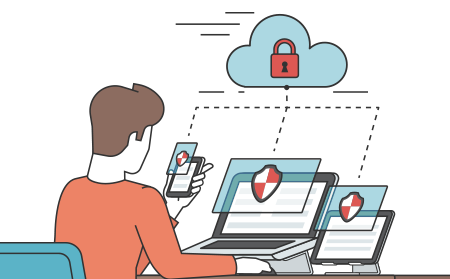Website Trust Check: Is The Website Safe or Not?
Due to the proliferation of cybercrimes, it’s only practical to do a website trust check before loading any website. Despite the website owners’ efforts to keep their websites safe from cyber attacks, new-age hacking techniques enable hackers to breach security.
It’s no surprise that statistics show that about 30,000 websites get hacked every day. The compromised websites get infected with some type of malware or malicious code that can lie undetected for a long time. The hack can result in data breaches and put website visitors’ computers at risk.
In the second quarter of 2019, there are already 9,898 phishing scams reported and the amount lost is $500,000. If you don’t do a scam website checker, the chances of you falling victim to cyber attacks are high.
What Are the Consequences of Visiting Unsafe Websites?
1. Getting Scammed
A scam site checker is important because it is difficult to recognize fake websites from legitimate ones. Almost $2M has already been lost to online shopping scams. Make it a habit to do a scam site check before you make a transaction online to verify website authenticity.

2. Data Theft
If you don't verify website authenticity you can be a victim of data theft. By visiting a compromised website, hackers can install data-stealing malware on your computers such as trojans, rootkits, and keyloggers. Those types of malware can create a backdoor that enables hackers to access your computer without your knowledge. Therefore, he can also have access to your personal information such as credit card numbers, usernames, passwords, and bank account information.
3. Unauthorized Transactions
With your personal information in the wrong hands, it can be used to make unauthorized transactions. Hackers can access your accounts and empty your bank account. You might just be aware that your computer has been hacked when unauthorized charges appear on your billing statement.
4. Corrupted Computer
Malware infections will eventually result in a corrupted operating system. Some types of malware attach themselves to legitimate programs to spread to the computer. The program they attached themselves gets corrupted as malware overwrites the source codes. When critical data get corrupted the computer starts acting up. You will see warning signs such as the blue screen of death, programs acting up, and strange error messages
3 Important Tools to Check Website Reputation
1. Google Safe Browsing
With Google Safe Browsing, you can verify website authenticity before loading it to prevent malware infections. It examines millions of websites every day. Google Safe Browsing will notify you if there are threats on the websites. Copy and paste the URL into it and it will scan the website.
2. Comodo Web Inspector
Comodo Web Inspector is a free website scanner that combines website and malware scanners to verify website reputation. Once you paste the URL into it, Comodo Web Inspector will search the website for malicious elements such as phishing links, malware, malvertising, and infected pop. It will provide the complete details once it’s finished scanning.
3. VirusTotal
VirusTotal is another reputable website scanner that can help you avoid falling victim to cyber attacks. Not only it scans URLs, but it also scans software. If you want to check if the file you download is safe, you can use VirusTotal.
Additional Tips - Verify the Website Trust
You can also do a website trust check by verifying the connection of the website. If it uses an HTTPS connection, it means that the connection is encrypted. Therefore, the information being transmitted are safe from getting.
You may also check the website security certificate. If it’s valid, it means that the website applies good security measures.
How to Keep Your Website Safe from Hackers?
You can improve your website security to prevent getting hacked by using effective website security software like Comodo cWatch. It has a multi-layered defense to protect your website from varieties of cyberattacks such as DDoS attacks, Brute Force, SQL Injections, and Cross-Site Scripting.
Comodo cWatch consists of advanced malware detection tools, a web application firewall, artificial intelligence, and a dedicated security team that enhances your website security, leaving no window open for cyber attacks. So, when users do a scam site checker, you know your website won’t be flagged as unsafe.
Conclusion - Try cWatch Trust Checker to Check if Website is Safe.
Upon learning about the consequences of visiting unsafe websites, you have more reasons to do a website trust check. There are free and effective tools you can use to verify the website reputation and prevent malware infections.





